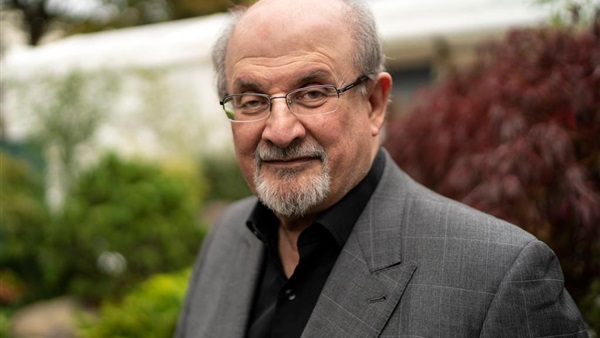Khomeini’s fatwa on killing Rushdie under spotlights after 33 years

The assassination attempt on the
British novelist of Indian origin Salman Rushdie on August 12, 2022 inside the
Chautauqua Institute in western New York by a young man named "Hadi
Matar" sparked outrage from the international community, especially
America, Britain and France.
On the contrary, some officials and
the Iranian regime’s media welcomed this attempt, which comes 33 years after
the former Iranian leader Ayatollah Khomeini issued a fatwa in 1989 to shed
Rushdie’s blood because of his novel “The Satanic Verses” published in 1988.
In a statement late Sunday,
Secretary of State Antony J. Blinken said Rushdie was “in our thoughts in the
aftermath of this heinous attack.”
“Specifically, Iranian state
institutions have incited violence against Rushdie for generations, and
state-affiliated media recently gloated about the attempt on his life. This is
despicable,” said Blinken.
Just hours after Friday’s attack at
a literary event in western New York state, the British author had undergone
emergency surgery for potentially life-threatening injuries.
Two days later, Rushdie was on the
road to recovery and showing signs of his “feisty and defiant” self, family and
friends said Sunday, days after the shocking assault left him on a ventilator
with multiple stab wounds.
Mr. Rushdie was stabbed roughly 10
times on Friday while speaking at the Chautauqua Institution in western New
York. He suffered multiple injuries, including a damaged liver, and is expected
to lose an eye.
On the other hand, a spokesman for
Iran’s Foreign Ministry, in the first remarks from the government since the
assault, said the prizewinning author had crossed “red lines.”
In the first official statement by
Tehran since the attack, the spokesman, Nasser Kanaani, put the blame on Mr.
Rushdie.
According to the Iranian Students’
News Agency, Mr. Kanaani said that Mr. Rushdie had crossed “red lines” and
“exposed himself to the anger and ire of the people.” He said that Tehran had
no information on the attacker beyond what was being reported in U.S. news
media.
“In this case, we don’t blame or
condemn anyone except Salman Rushdie and his supporters,” Mr. Kanaani said.
The police arrested Hadi Matar, a
24-year-old New Jersey man, in the attack.
Despite the failure of attempts to
assassinate “Rushdie” over the past years, a number of those who translated
this novel or published excerpts from it, some of them were killed and some
were seriously injured.
Seyed Mohammad Marandi, a senior
adviser to Iran’s nuclear negotiating team, said he would not shed a tear for
the writer “who spouts endless hatred and contempt for Muslims and Islam.”
Meanwhile, speaking to the
Associated Press, Reza Amiri, a 27-year-old deliveryman, said: “I don’t know
Salman Rushdie, but I am happy to hear that he was attacked since he insulted
Islam.
France President Emmanuel Macron
said Rushdie’s fight is universal now.
Macron took to Twitter to write,
“For 33 years, Salman Rushdie has embodied freedom and the fight against
obscurantism. He has just been the victim of a cowardly attack by the forces of
hatred and barbarism. His fight is our fight; it is universal. Now more than
ever, we stand by his side.”
Moreover, United Kingdom Prime
Minister Boris Johnson also condemned the attack and wrote, “Appalled that Sir
Salman Rushdie has been stabbed while exercising a right we should never cease
to defend. Right now my thoughts are with his loved ones. We are all hoping he
is okay.”





